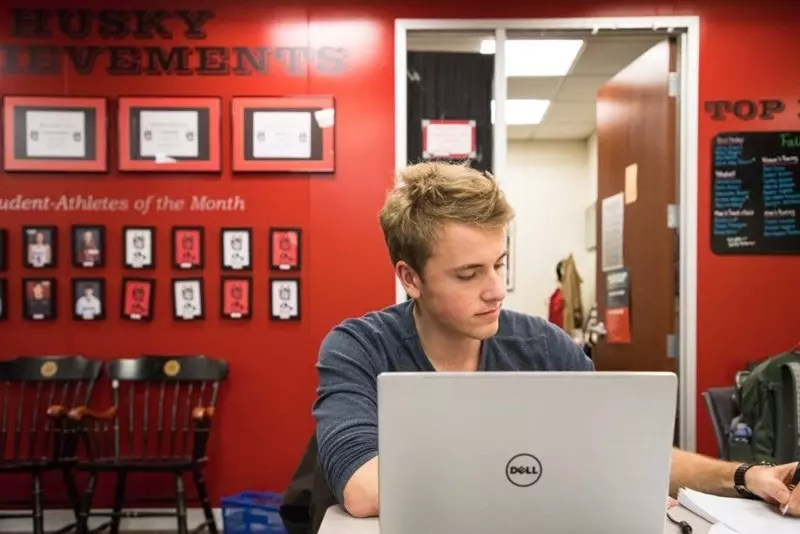Balancing Athletics and Career Development: Time Management Strategies for Student-Athletes

For student-athletes, each day can feel like a race against the clock. Between morning workouts, class lectures, afternoon practices, study sessions, team meetings, games, travel, and the occasional attempt at a social life, it’s easy to feel like there’s no room for anything else. But career development—building your resume, exploring future opportunities, networking, and gaining professional experience—shouldn’t be pushed aside. In fact, finding time to focus on your future career is one of the smartest investments you can make while you’re still in school.
The good news is that student-athletes are already equipped with the core qualities that make for successful time managers: discipline, structure, focus, and grit. With a few key strategies, you can leverage those strengths to strike a balance between your athletic commitments and your career goals.
1. Embrace Your Schedule Like It’s Game Film
Most athletes live by a schedule—and that’s a good thing. From early lifts to travel days, you’re used to operating on a tight timeline. The same mindset can be applied to your academic and career planning. Treat your planner (or calendar app) the way you treat a playbook: with respect and intention. Start by mapping out your weekly obligations—practice, class, games, and recovery time. Then identify the windows where you can consistently carve out 30–60 minutes for career-related work. Whether that’s updating your resume, reaching out on LinkedIn, researching internships, or attending a virtual workshop, those small pockets of time can add up fast when you’re consistent.
2. Prioritize the Long-Term Game
When you’re juggling so much at once, it’s easy to put career development on the backburner. But you don’t have to overhaul your life to make meaningful progress. The key is to focus on high-impact, low-time tasks. Can you write a quick thank-you email to a guest speaker from your last team workshop? That’s career development. Can you schedule a 15-minute chat with an alum working in an industry that interests you? That counts too. Prioritize tasks that strengthen your network, improve your professional presence, or give you insight into potential career paths. Think of each small effort as a rep toward your future success.
3. Use the Off-Season Wisely
Your off-season is gold. While you still train and condition year-round, there’s often a little more breathing room once the season ends. Use that time strategically. Take on a part-time internship or job-shadowing experience. Dive into e-learning courses or certifications that build skills relevant to your interests. Update your BluChip profile and start applying for summer internships before the deadlines hit. Even if you can’t commit to a full internship, look for short-term projects, one-day job simulations, or virtual work experiences that fit into your training schedule.
4. Leverage Support Systems
You’re not in this alone. Lean on the resources around you. Career services, academic advisors, coaches, and mentors are all there to help you plan wisely. If you’re not sure how to start networking or find internships that accommodate your athletic schedule, ask. Your coaches want to see you succeed beyond the field, and many are happy to adjust schedules or offer flexibility when you’re making proactive moves toward your future. The same goes for professors—when you’re transparent and responsible, they’re more likely to support your efforts.
5. Align Your Passions With Your Goals
Time management becomes a lot easier when you’re working toward something that excites you. Don’t feel pressure to pursue a career just because it sounds impressive. Explore paths that genuinely interest you and align with your strengths. For example, if you love team dynamics, maybe you’re a natural fit for human resources or management. If you’ve always been curious about health and fitness, sports medicine or performance coaching might be your zone. When your career development activities reflect your passions, they feel less like a chore and more like an extension of who you are.
6. Be Flexible, But Stay Committed
No matter how well you plan, things will get hectic. You’ll have weeks with back-to-back away games, exams, or a sprained ankle that changes your entire routine. Flexibility is essential, but don’t let one chaotic week derail your entire momentum. Instead, adjust. Maybe your career-related task this week is just listening to a podcast on the bus or reading a quick article between classes. Consistency is more important than intensity. A small step forward is better than none at all.
7. Celebrate Your Wins—Even the Small Ones
Did you update your resume? Land a summer internship? Send that email you’ve been putting off for weeks? Celebrate that. Building a career while being a student-athlete is no small feat. Every bit of progress matters. Reflecting on your growth, even in small ways, helps you stay motivated and focused.
Balancing athletics with career development isn’t about doing everything at once. It’s about doing the right things, at the right time, with intention. Student-athletes have a rare mix of time-tested habits and natural drive that make them uniquely positioned to excel in the workplace. By approaching your career planning with the same focus you bring to your sport, you’ll set yourself up for success far beyond your final season.

